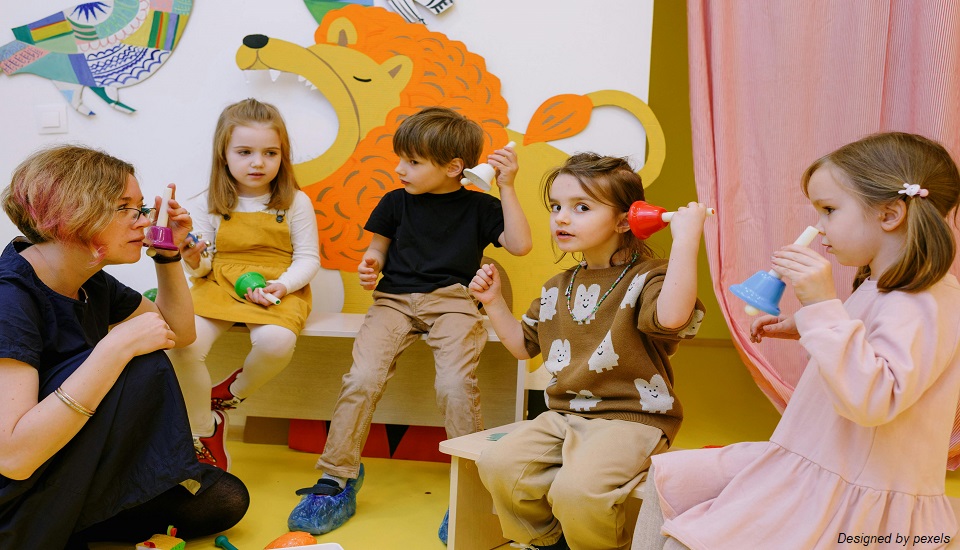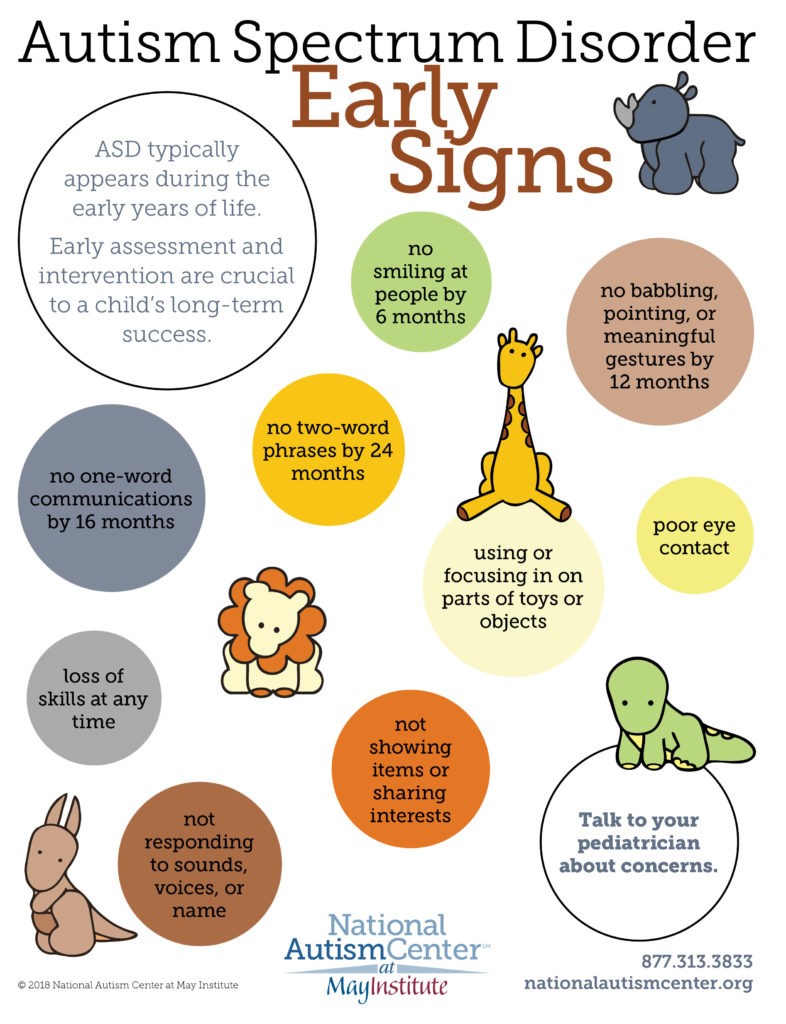Detecting The Early Warning Signs Of Autism In Toddlers: Here's How!
12th April 2024

A neurodevelopmental condition that impacts behavior, social interaction, and communication is called autism spectrum disorder (ASD). Early infancy is usually the time of diagnosis, with toddler years being the most common time for signs and symptoms to manifest. Comprehending the initial indications of autism in toddlers is imperative for prompt identification and remediation, which may greatly influence the ultimate results.
What Is Autism Spectrum Disorder?
The complex developmental disorder known as autism spectrum disorder (ASD) is typified by difficulties with speech, social interaction, and limited and repetitive activities. Since ASD is a spectrum condition, its members might display a broad variety of symptoms and skills.
Each person with ASD is affected differently, and symptoms might vary in intensity. Some people with ASD may be very gifted in specific fields, including music, math, or visual arts. They could, however, have trouble interacting with others, reading nonverbal clues, and adjusting to schedule changes.
What Are The Early Signs Of Autism In Toddlers?
Early intervention and assistance for toddlers with autism require an awareness of the early symptoms. Even while each kid grows at their rate, several warning signs might point to an ASD diagnosis. Among these indicators are:

- Lack Of Social Engagement And Interaction
Autism-related toddlers may find it challenging to interact socially. They might not make eye contact, react negatively when their name is called, and appear uninterested in engaging in play or social interactions.
- Repetitive Behaviours And Stimming
Toddlers with autism often exhibit repetitive behaviors and self-stimulatory activities, or stimming. These actions might take the form of hand gestures, swaying, spinning, or repeated motions. They might be used as a means of seeking out sensory stimulation or as coping methods for overpowering sensory stimuli.
- Communication And Language Difficulties
Early indicators of autism in children include frequently delayed speech and language development. They could find it challenging to communicate using gestures or babble. Additionally, some children with autism may repeat words or phrases without understanding their meaning, a behavior known as echolalia.
It's crucial to remember that these symptoms do not provide conclusive evidence of autism. If these behaviors are noticed regularly, it might be helpful to speak with a healthcare provider for more assessment and direction.
Early detection of autism in toddlers enables prompt assistance and intervention, which can greatly enhance the results for kids with ASD. The full potential of people with autism can be realized via individualized therapies and methods that are made possible by early identification and intervention.
Do you follow us on Social Media? We regularly share upgraded educational content, tips, feedback, and more. Check us out by clicking the profiles here - Facebook / Twitter / LinkedIn / Pinterest / Instagram / YouTube
Common Social And Behavioural Signs Of Autism
Here are some of the social and behavioral red flags that can be observed in a child with autism.
Social Communication Challenges
- Typically, the child doesn't draw attention to or discuss their observations or experiences with others.
- The youngster usually avoids making eye contact with others in a sociable manner. This is also known as not making eye contact.
- There could be no speech at all, or there might be odd speech patterns like echolalia, which is the repeated repetition of words and phrases, or the inversion of the pronouns "I," "me," and "you."
- Unusual reactions to other individuals. A youngster might not want to be snuggled, favor familiar people over strangers, and act more like an object than a comforting person.
- The baby could seem to prefer being by themselves over social circumstances.
- The development of play activities, especially imaginative ones, is lacking.
- Both unexpectedly little or no sobbing may be heard.
Behavioural Red Flags
- The kid frequently makes noticeable repetitive motions, like flapping or shaking their hands rocking back and forth, or spinning things.
- Many kids grow to have an intense fascination with some toys or items while disregarding others.
- The youngster could be extremely resistant to changes in their surroundings or habits.
- The child might not tolerate a wide range of meals in their diet or they might be resistant to solid foods.
- Toilet training can be challenging at times, and the kid may experience sleep issues.
- The sounds and/or crowded public areas, such as malls, may cause the child great anxiety.
How Do You Recognize Autism In Toddlers?
It is essential to identify autism in toddlers at an early age to provide timely assistance and intervention. Here are some ways to do so:
- Diagnostic And Screening Tests
To help identify early warning symptoms of autism in toddlers, a variety of screening instruments and courses are available. These resources offer direction on evaluating young children's social attention, communication styles, and behavioral indicators of ASD.
Questionnaires and observations are frequently used in these assessments to assist find any red flags and behaviors connected to autism spectrum disorder (ASD). It could be advised to have a thorough examination conducted by a medical expert with expertise in developmental problems if issues are found throughout the screening phase.
- Learn The Signs
The Centers for Disease Control and Prevention (CDC) Act Early initiative offers free materials in both English and Spanish for parents, daycare providers, and pediatric physicians to track a child's growth. For kids as early as two months old, the program provides milestone checklists that are easy to use for parents and based on research.
- Schedule An Appointment With Experts
Don't delay if you are worried about your child's growth. Consult your physician right away about having your kid screened for autism. The Autism Speaks Resource Guide can be used to locate local providers. Even though each child develops uniquely, early intervention may frequently significantly enhance results. Research indicates that early behavioral intervention, for instance, enhances social skills, communication, and learning in young children diagnosed with ASD.
Read The Signs Early For Positive Outcomes
Parents, teachers, and other caregivers must keep in mind that every autistic kid is different and that each child's intervention strategy should be customized to meet their requirements. A course on Master of Arts in Education with Special Educational Needs can help teachers and parents who seek support and guidance at an early age to provide their kids with the tools and tactics they need to flourish.
We believe education should be accessible for everyone. That’s why we don’t charge for our blogs. Find the right course that will help you in your career with us, contact us at +6621056101. You can mail us at act@asiancollegeofteachers.com

